Our Trainings Have Moved
Our live and on-demand trainings have moved to the new Food Finance Learning Center!
The Edible-Alpha Podcast
Listen to the Edible-Alpha Podcast
-

Bread SRSLY Puts People Ahead of Profit
Listen to the full episode: Bread SRSLY Puts People Ahead of ProfitIn Edible-Alpha® podcast #72, Tera talks to Sadie Scheffer, founder and CEO of Bread SRSLY, a gluten-free, vegan sourdough bread company based in San Francisco.
-
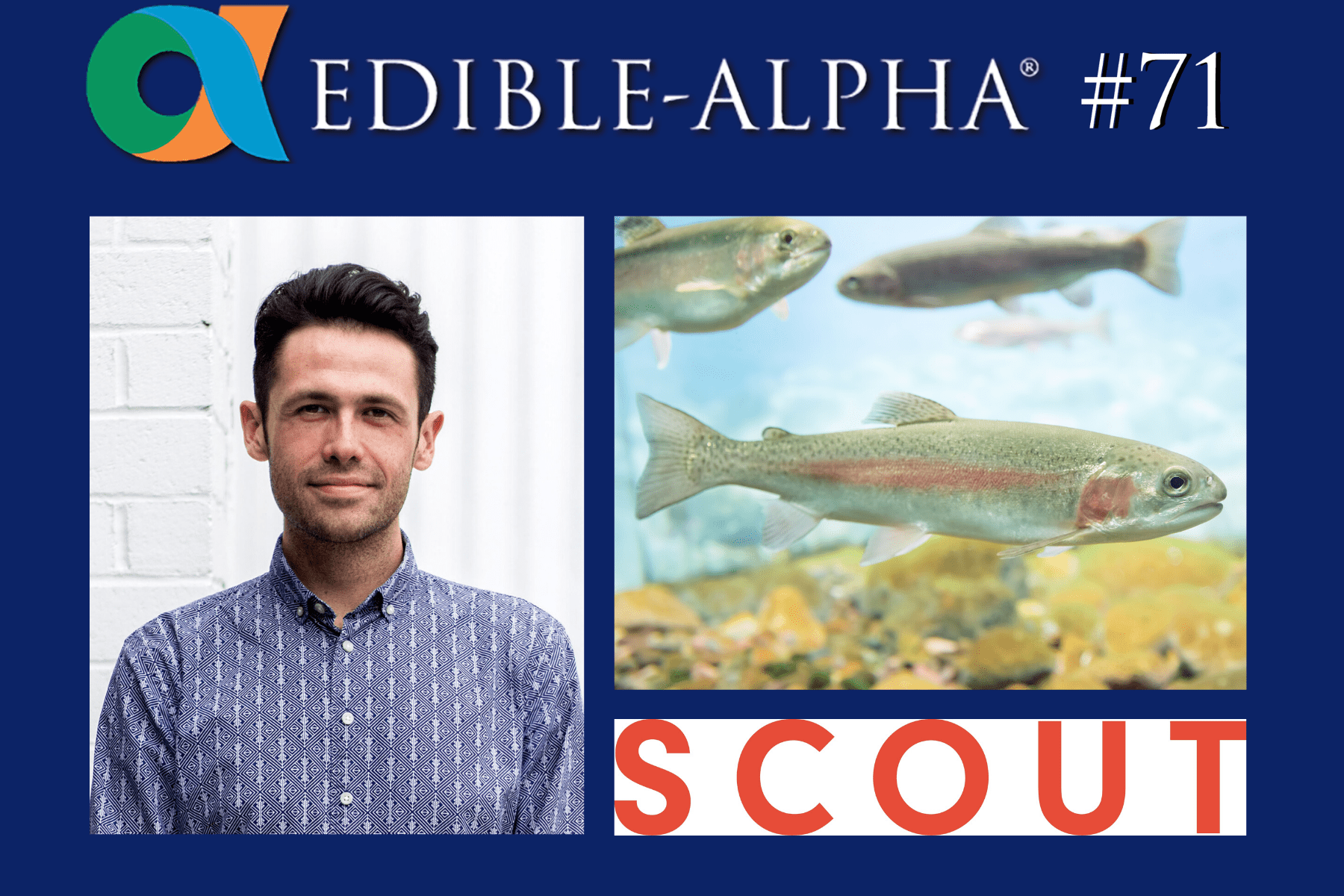
Scout Canning Makes Shelf-Stable Seafood Sustainable
Listen to the full episode: Scout Canning Makes Shelf-Stable Seafood SustainableIn Edible-Alpha® podcast #71, Tera talks to Adam Bent, co-founder and CEO of Scout Canning, a Toronto, Ontario-based craft cannery launched in December 2018.
-

Transforming ‘Waste’ into Wow-Worthy Beverages
Listen to the full episode: Transforming ‘Waste’ into Wow-Worthy BeveragesIn Edible-Alpha® podcast #70, Tera chats with Paul Evers, co-founder and CEO of Bend, Oregon-based Riff Cold Brewed , about the successful startup’s origin story, the power of a strong brand and upcycling a would-be waste ingredient into a crave-worthy craft beverage.
-
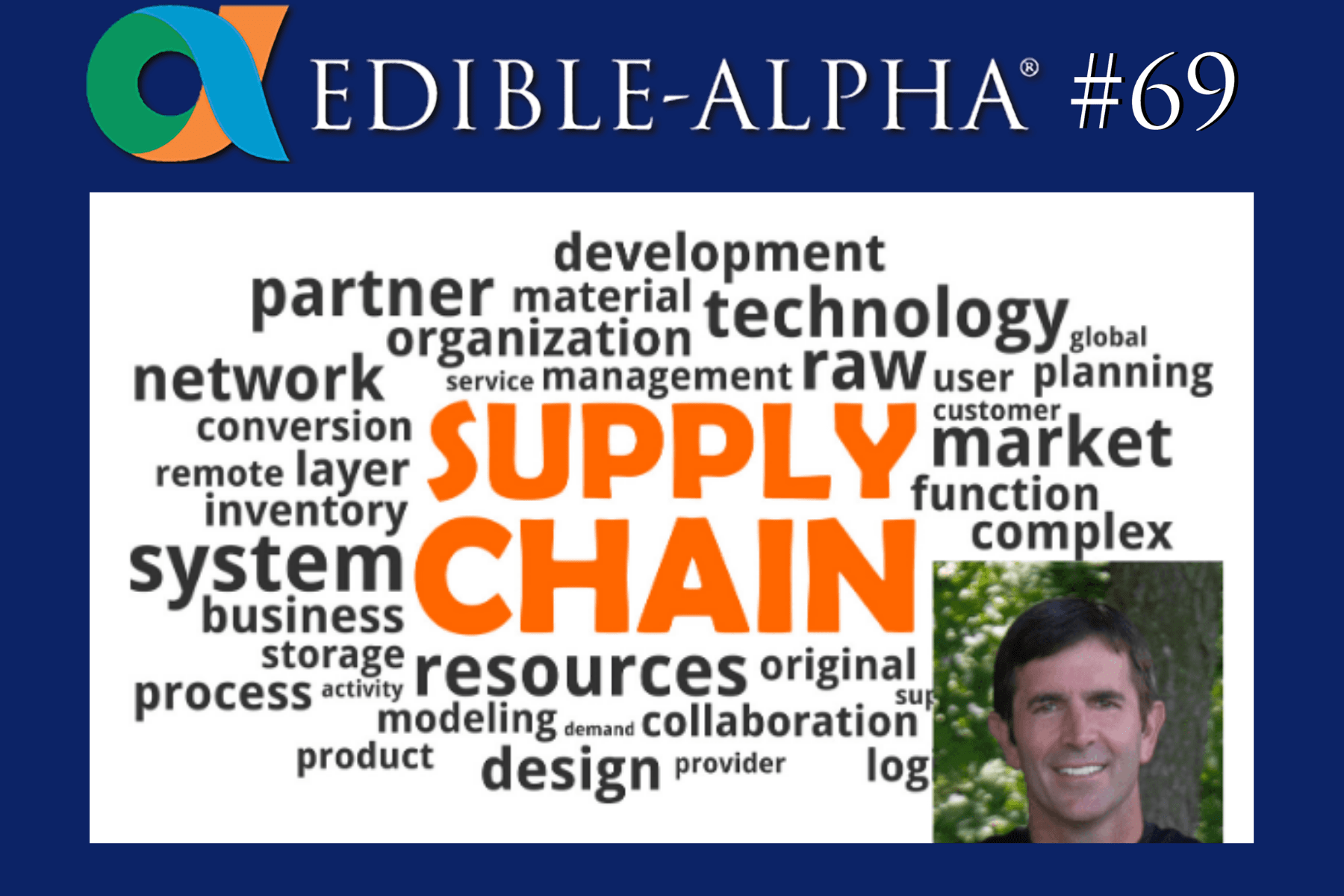
Reshaping the Supply Chain for Max Efficiency
Listen to the full episode: Reshaping the Supply Chain for Max EfficiencyIn Edible-Alpha® podcast #69, Tera interviews Brad Rostowfske, founder of Raise the BAR Innovation and director of industry growth at FaB Wisconsin, about the food and beverage supply chain before COVID-19, the current state of affairs and what it could look like post-pandemic.
-

How Self-Manufacturing Helps Food Brands Be Nimble
Listen to the full episode: How Self-Manufacturing Helps Food Brands Be NimbleIn Edible-Alpha® podcast #68, Tera talks with Kate Flynn, cofounder and CEO of Sun & Swell Foods, a Certified B Corporation based in Santa Barbara, California that offers organic whole food grab-and-go snacks and pantry staples.
-

Building a Beverage Brand, from Foraging to Financing
Listen to the full episode: Building a Beverage Brand, from Foraging to FinancingIn Edible-Alpha® podcast #67, Tera chats with Rachael Young, founder and CEO of YAYAYA, an Austin, Texas-based beverage startup centered around the caffeinated plant yaupon.
-

The Inside Scoop on Selling Online Today
Listen to the full episode: The Inside Scoop on Selling Online TodayIn Edible-Alpha® podcast #66, Tera sits down with Matthew Starr, founder of Rally Energy, a caffeinated mint and cough lozenge brand based in Madison, Wisconsin.
-
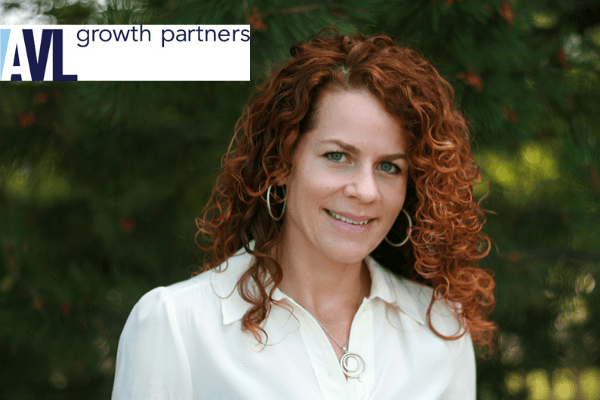
CFO Savvy for Growing Food Brands
Listen to the full episode: CFO Savvy for Growing Food BrandsIn Edible-Alpha® podcast #65, Tera interviews Heidi Huntington, vice president of finance at AVL Growth Partners in Boulder, Colorado, which lends finance and operations expertise to rapidly growing small and midsize companies.
-
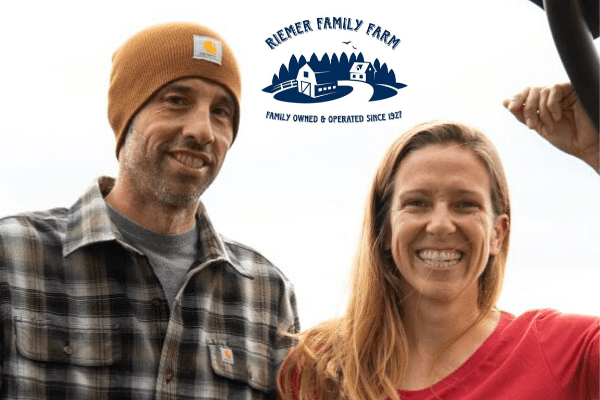
Regenerating a Family Farm for the Future
Listen to the full episode: Regenerating a Family Farm for the FutureIn Edible-Alpha® podcast #64, Tera catches up with Bryce and Jen Riemer of Riemer Family Farm in Brodhead, Wisconsin, which Bryce’s grandfather started in 1927.
-

Is Bankruptcy Best? How Food Businesses Can Decide
Listen to the full episode: Is Bankruptcy Best? How Food Businesses Can DecideIn Edible-Alpha® podcast #63, Tera and consultant Bartlett Durand discuss the difficult financial realities facing so many food entrepreneurs right now, as the entire nation grapples with the COVID-19 crisis.
-
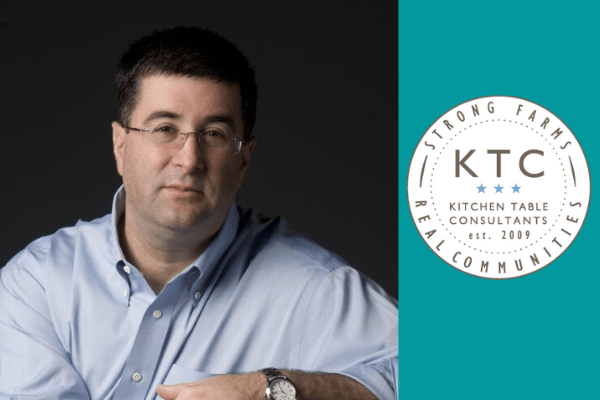
How Food and Farm Businesses Can Survive This Pandemic
Listen to the full episode: How Food and Farm Businesses Can Survive This PandemicIn Edible-Alpha® podcast #62, Tera talks with Ted LeBow, cofounder and managing principle of Kitchen Table Consultants, about how small food and farm businesses can stay afloat through the current COVID-19 crisis.
-

Disrupting a Category with Innovation, Authenticity and Sustainability
Listen to the full episode: Disrupting a Category with Innovation, Authenticity and SustainabilityIn Edible-Alpha® podcast #61, Tera catches up with Sascha Dhanjal, founder and president of Saffi Foods based in Madison, Wisconsin.
-

The Importance of Getting New Food Products ‘Retail Ready’
Listen to the full episode: The Importance of Getting New Food Products ‘Retail Ready’In Edible-Alpha® podcast #60, Tera catches up with consultant Alli Ball, creator of the Retail Ready online course and the Food Biz Wiz podcast.
-

Innovation and Differentiation Drive Success for Century Sun Oil
Listen to the full episode: Innovation and Differentiation Drive Success for Century Sun OilIn Edible-Alpha® podcast #59, Tera talks with Dale and Pam Johnson, owners of Century Sun Oil in Pulaski, Wisconsin.
-
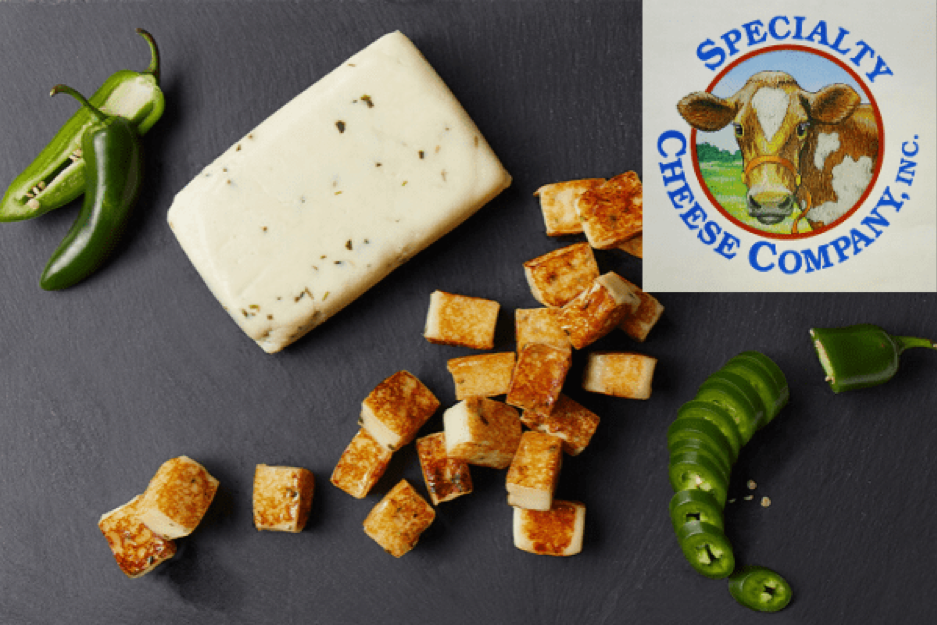
How Rural Food Businesses Can Thrive—and Revive Communities
Listen to the full episode: How Rural Food Businesses Can Thrive—and Revive CommunitiesIn Edible-Alpha® podcast #58, Tera speaks with Paul Scharfman, president of Specialty Cheese Company in Reeseville, Wisconsin, known for its Hispanic and other ethnic cheeses.
-
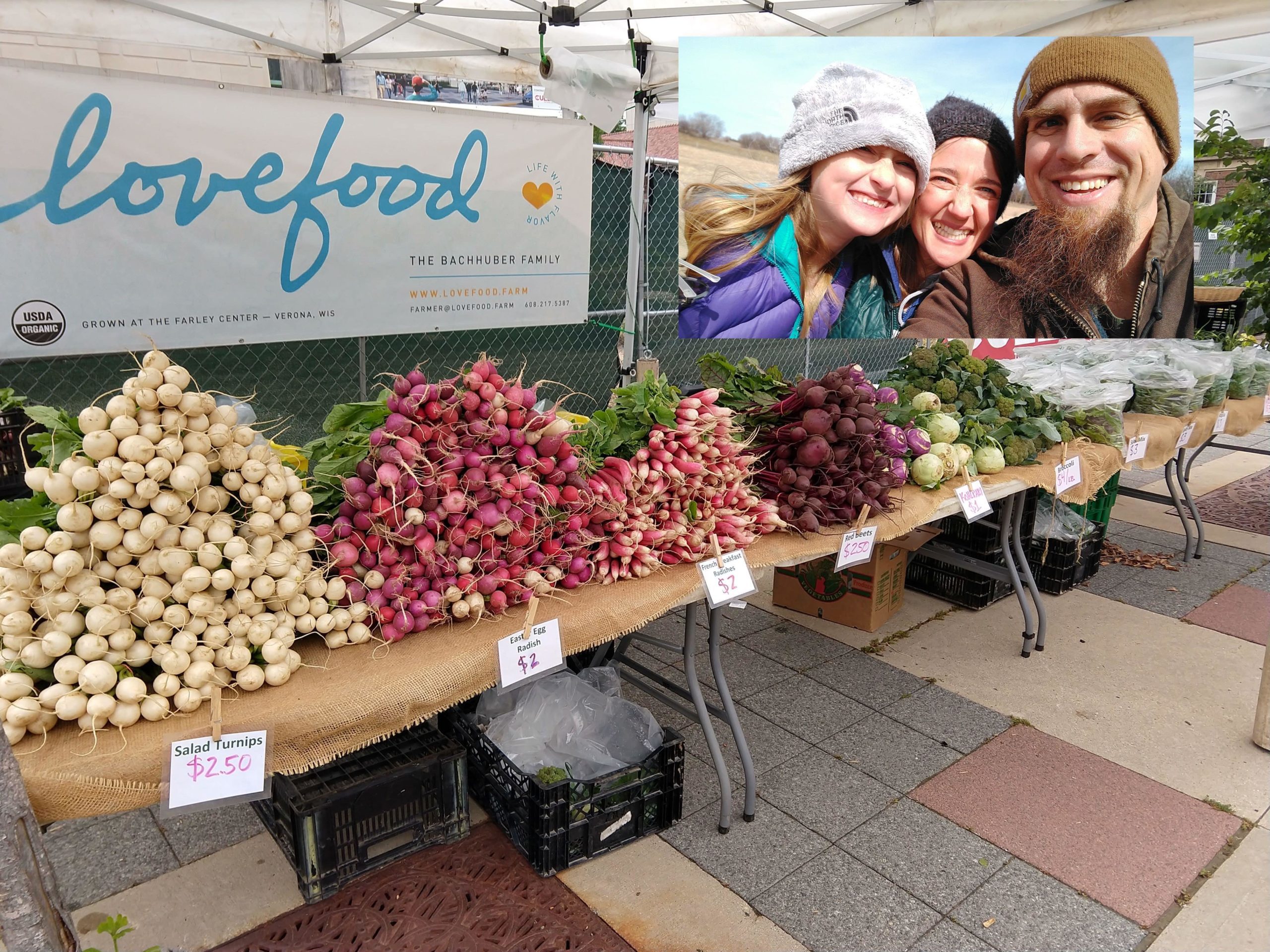
Generating Income In A Small Diversified Vegetable Farm
Listen to the full episode: Generating Income In A Small Diversified Vegetable FarmIn Edible-Alpha® podcast #57, Tera speaks with Abby and David Bachhuber from Lovefood Farm, a small, profitable, diversified organic vegetable farm in the Madison, WI area.
-
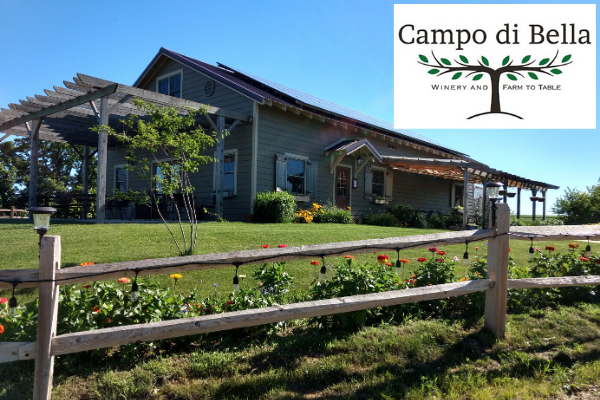
Embracing the Entrepreneurial Spirit – Creating a Diversified Agritourism Business
Listen to the full episode: Embracing the Entrepreneurial Spirit – Creating a Diversified Agritourism BusinessIn Edible-Alpha® podcast #56, Tera speaks with Mary Ann Bellazzini from Campo Di Bella winery, farm and farm-to-table restaurant.
-
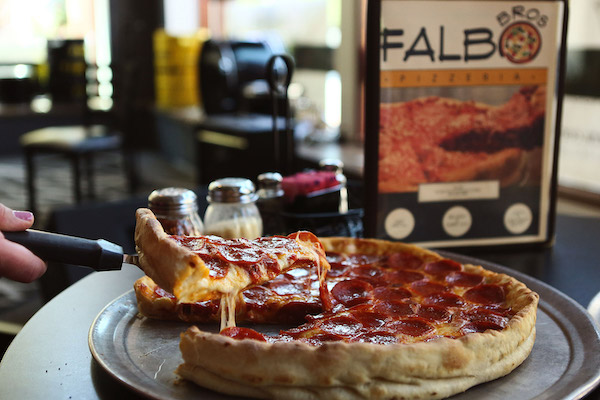
Franchising Food Businesses With Jason Schleip
Listen to the full episode: Franchising Food Businesses With Jason SchleipFranchisers make money through initial franchise fee for setup costs, controlling product sales (by buying product, then selling to the stores after marking it up), and royalties, which come off of top line sales of the franchised business in return for the support and process development of the franchiser. This is often the biggest source…
-
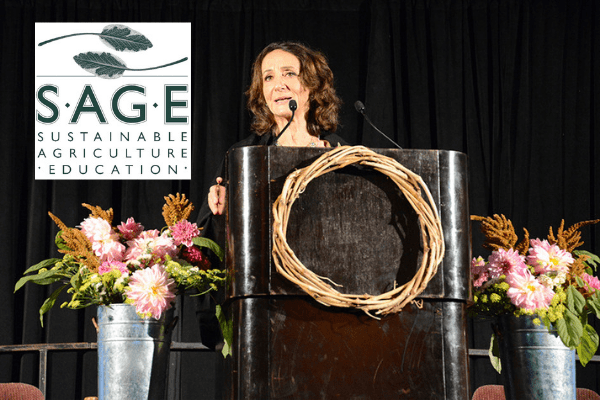
How SAGE revitalizes agriculture near cities
Listen to the full episode: How SAGE revitalizes agriculture near citiesSAGE contributes to the food system by helping elevate the data around the impact of food and agriculture in a way that helps people understand the connections between this sector and the rest of society and the economy.
-

Visualizing The Food System With Kitchen Sync Strategies
Listen to the full episode: Visualizing The Food System With Kitchen Sync StrategiesKitchen Sync gets different people at the table – including the private sector – using the right language to invite everyone in to a problem solving and solutions-based session that meets their values and needs, rather than trying to change minds about those fundamental concepts. In bringing those people to the table, they are also…
-
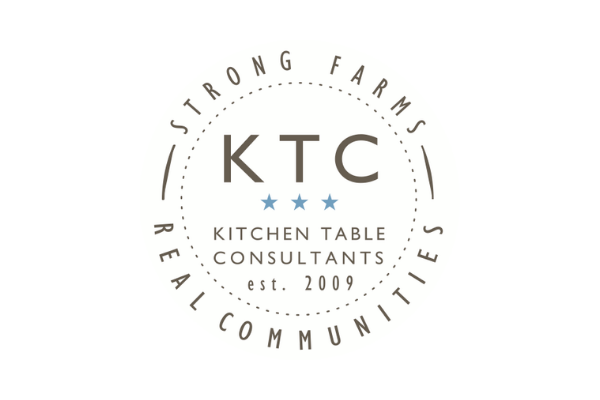
“Rolling Up Your Sleeves” – How KTC Does Effective Food Business Consulting
Listen to the full episode: “Rolling Up Your Sleeves” – How KTC Does Effective Food Business ConsultingThe heart of Kitchen Table Consultants’ work is one-on-one coaching with food and farm clients, but as their work has grown they have started helping other organizations provide better technical assistance. Rather than just make plans or recommendations for clients, it is critically important to their firm’s mission and values that they “roll up their…
-
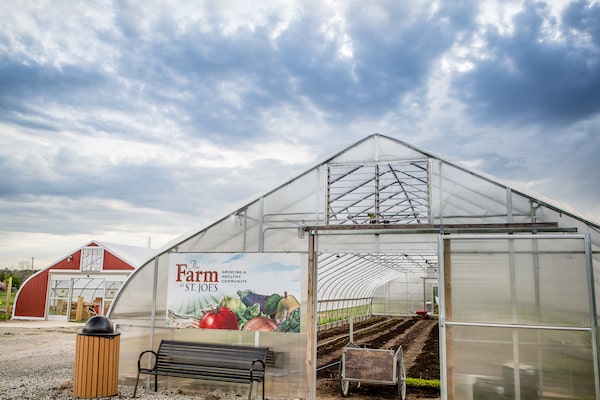
Hospital-Based Farming – A Bridge To Community Health And Wellness
Listen to the full episode: Hospital-Based Farming – A Bridge To Community Health And WellnessThe farm isn’t just a physical location that grows produce – it is part of a commitment by the hospital system to extend healthcare and wellness beyond the hospital campus and empower the community to lead healthier lives. They operate a CSA, a farmers market, community events and a Product To Patients program.
-
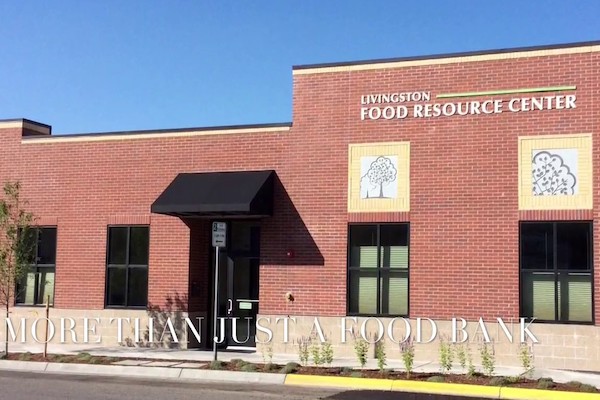
Transforming a Food Pantry into an Engine for Rural Prosperity
Listen to the full episode: Transforming a Food Pantry into an Engine for Rural ProsperityThe Livingston Food Resource Center is a nonprofit food pantry and service provider serving a county of 17,000 people in rural Montana with a food acquisition model to purchase directly from area farmers and ranchers. Kitchen rental, value-added processing, community room rental and catering all provide earned income for their operations.
-

Leveraging Plant Based Foods For Rural Prosperity
Listen to the full episode: Leveraging Plant Based Foods For Rural ProsperityGreat Falls is seeking to leverage its reputation as the “Golden Triangle” to grow its larger scale producers (as opposed to smaller scale, cottage food industry producers) for larger domestic markets. Consumer demand is suggesting the best path lays in fulfilling a plant forward diet.
-
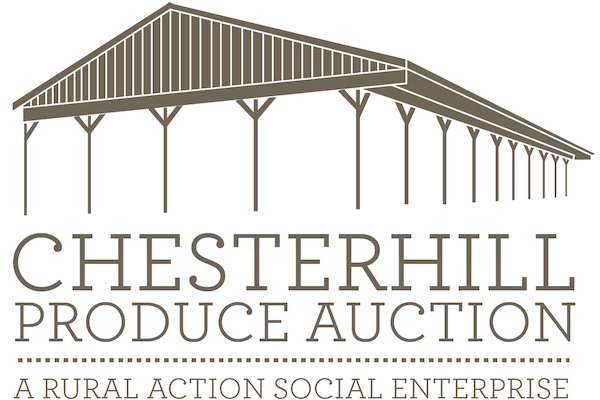
The Chesterhill Produce Auction: A Catalyst For Produce Producers
Listen to the full episode: The Chesterhill Produce Auction: A Catalyst For Produce ProducersThe auction focuses on getting smaller producers in the area to the scale to where they can sell and get attention for their products. Last year the auction grossed over $300,000, with the auction taking a 16% commission for all vegetables sold.
-

Tim Keane On Golden Angels Investors’ Funding Philosophy
Listen to the full episode: Tim Keane On Golden Angels Investors’ Funding PhilosophyGolden Angels Investors advise entrepreneurs to focus on building their sales and getting as much customer feedback as they can before they risk too much with the business. This, as well as the identification of competitors, helps validate that the business has some traction in the marketplace in the eyes of investors.
-

Joel Solomon On How Food Businesses Can Be Part Of The Clean Money Revolution
Listen to the full episode: Joel Solomon On How Food Businesses Can Be Part Of The Clean Money RevolutionThere is a disconnect between perceptions of available money for food business and the sheer volume of individuals/funds looking to invest at various stages. And, natural food investors are starting to look at even earlier stage companies now that there is so much competition at the product, retail and investment levels of the food business…
-
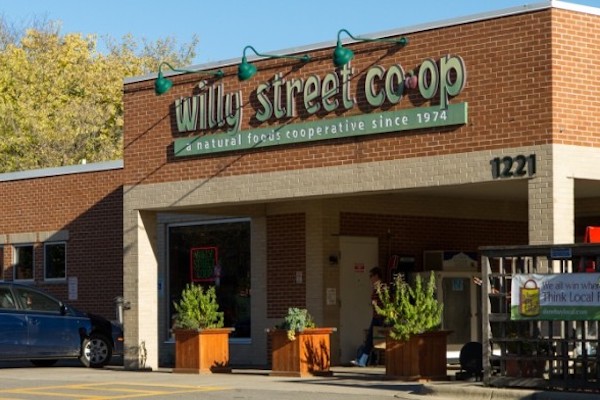
Ownership Differentiates Willy St. Co-op In A Changing Grocery Market
Listen to the full episode: Ownership Differentiates Willy St. Co-op In A Changing Grocery MarketWilly Street Co-op is a set of cooperatively owned retail grocery stores in Madison, WI with 35,000 member-owners and about 400 employees across three stores. They have found that operating transparently and openly, emphasizing cooperative ownership and owner literacy, has provided a point of differentiation in the current marketplace.
-

This Food Hub Leverages A Diverse Food Shed For A Resilient Future
Listen to the full episode: This Food Hub Leverages A Diverse Food Shed For A Resilient FutureDorchesters Farm Food Hub aggregates and tries to ensure consistent supply of seafood and farm products (fruit, produce, livestock) and then redistributes to areas that are historically under-served via direct delivery of fresh and healthy food options, giving its customers lots of choice and flexibility.
-
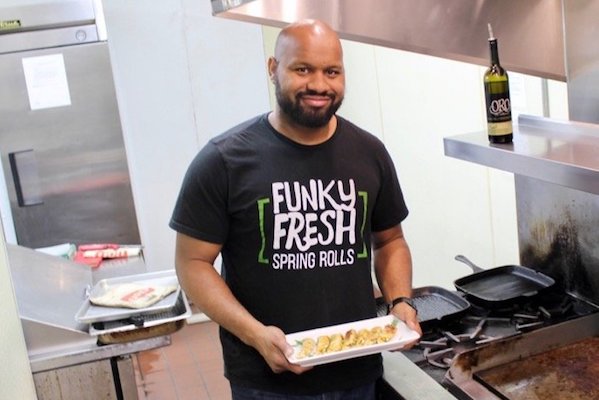
Food Entrepreneurship and Resilience – A Funky Fresh Take With Trueman McGee
Listen to the full episode: Food Entrepreneurship and Resilience – A Funky Fresh Take With Trueman McGeeFunky Fresh Spring Rolls is a company that produces uniquely flavored, hand rolled spring rolls that are baked or grilled (not fried) with fresh and local ingredients. The Funky Fresh team began selling at Farmers Markets, which in addition to providing early cash flow have functioned as market research labs, allowing them to talk directly…
-
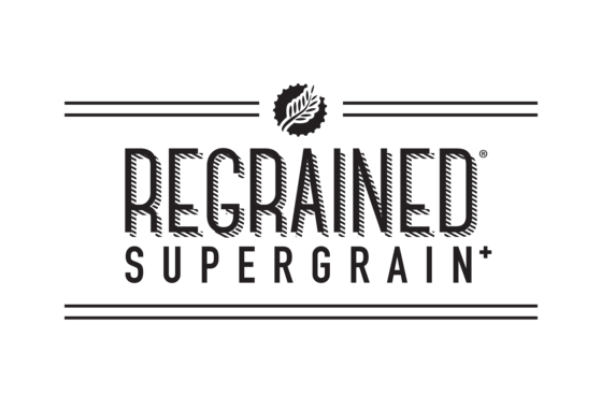
ReGrained, A Business Model For The Long Term And The Planet
Listen to the full episode: ReGrained, A Business Model For The Long Term And The PlanetReGrained launched their product at scale in January 2018 after multiple iterations of their product (in the crowded bar category) and now are working with other businesses to help them produce/co-brand new products using their production facility and the expertise embedded in their proprietary process.
-
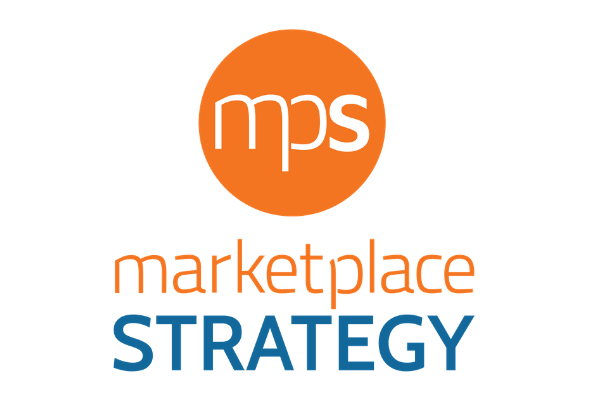
Grow Your Food Brand On Amazon, If You Constantly Optimize
Listen to the full episode: Grow Your Food Brand On Amazon, If You Constantly OptimizeThe Amazon platform provides a means for small and emerging brands to find an audience and generate sales if they dedicate time and resources to ensure discoverability on the platform by constantly optimizing product pages with the right keywords and features once the user is on the page, in addition to paying for keyword-based advertising.
-

How A Bank Can Strengthen Farming Communities Through Innovative Lending
Listen to the full episode: How A Bank Can Strengthen Farming Communities Through Innovative LendingEphrata National Bank in Lancaster County, Pennsylvania is a $1 billion community bank with 25% of their portfolio funding agricultural entrepreneurs. Lending to support new business models or premium offerings (like value-added processing) can help farmers deal with high land prices and avoid commodity agriculture’s low return on assets.
-
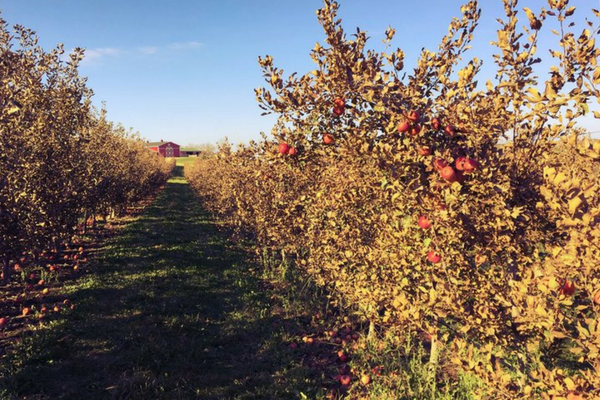
How This Hard Cider Business Is Learning From “The Struggle”
Listen to the full episode: How This Hard Cider Business Is Learning From “The Struggle”Brix Cider began producing in small batches and self-distributing throughout southern Wisconsin. Their ultimate goal is to open a cider tasting room (increasing margins and cash flow); however, through the struggle to find the right space, they have learned business problem solving skills and financial literacy.
-
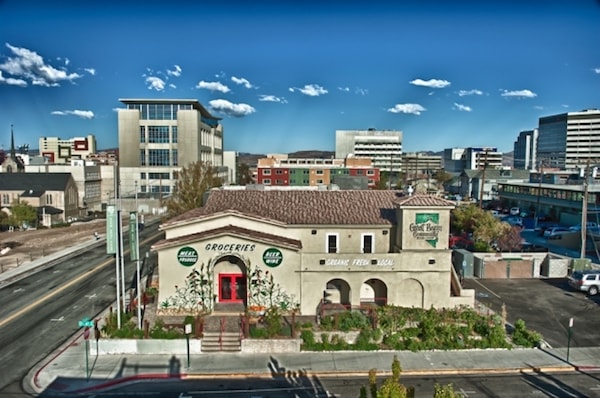
Growing A Successful Retail Food Co-op By Meeting Your Member’s Needs
Listen to the full episode: Growing A Successful Retail Food Co-op By Meeting Your Member’s NeedsThe Great Basin Community Food Co-op first opened to the public in downtown Reno with 500 feet of retail space, eventually hitting $1 million in sales in one year. In 2012 they moved to another 3-story location of about 3,000 square feet (on the main floor) even closer to downtown. In 2017, the store had…
-
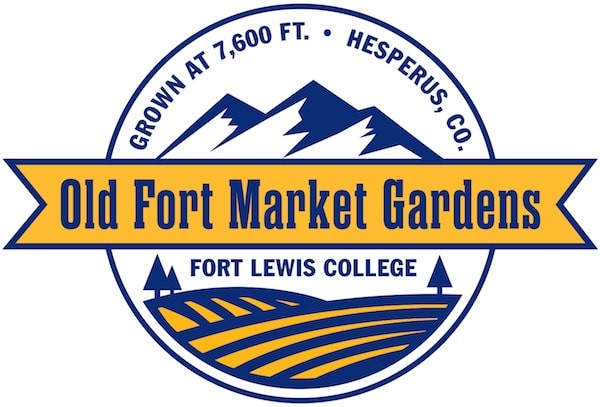
The Farmer Education Continuum In The Colorado Mountains
Listen to the full episode: The Farmer Education Continuum In The Colorado MountainsThe Old Fort at Hesperus’ team sees farming education as a continuum where different people are best served by discreet programs, depending on their interests and stage of development. Their sustainable agriculture program includes an educational garden internship, a farmer-in-training program, and market garden incubator.
-
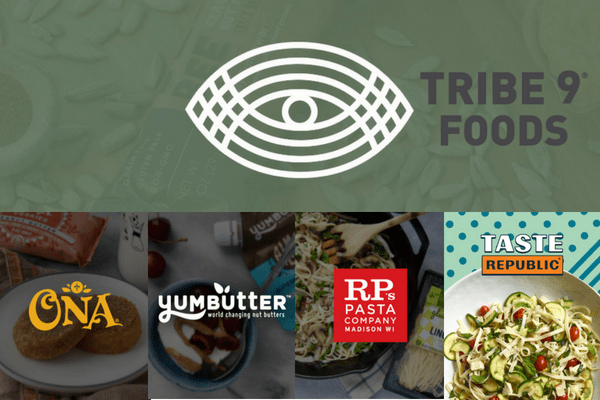
How Tribe 9 Foods Balances Economies Of Scale With A Changing Marketplace
Listen to the full episode: How Tribe 9 Foods Balances Economies Of Scale With A Changing MarketplaceTribe 9 Foods secured growth capital to bring manufacturing in-house for the three brands that merged into their portfolio, something that has allowed them to have control over batch timing, batch size and product quality. In addition, in-house production allows them the flexibility to try new things and have a co-packing line of business for…
-
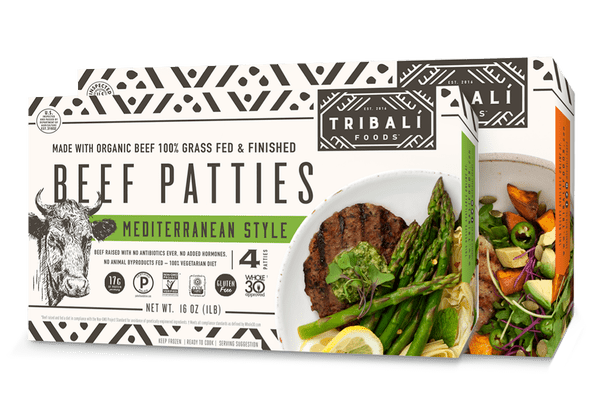
Angela Mavridis Of TRIBALÍ Foods On Resonating With Your Tribe
Listen to the full episode: Angela Mavridis Of TRIBALÍ Foods On Resonating With Your TribeTRIBALÍ’s clean, simple packaging communicates their organic, grass-fed and Paleo certifications, stands out on the freezer shelf and helps communicate their brand’s promise to that tribe. Angela Mavridis, TRIBALÍ’s founder and CEO reflects that the investor pitch process forces you to learn every single aspect of the business.
-
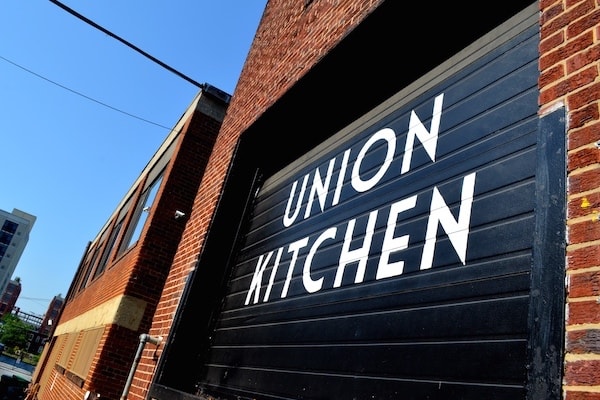
How Union Kitchen’s Ecosystem Helps Build Profitable Food Businesses
Listen to the full episode: How Union Kitchen’s Ecosystem Helps Build Profitable Food BusinessesUnion Kitchen is a shared-use kitchen and food business accelerator in in Washington D.C. While having a shared-use kitchen eliminates the need for capital for kitchen equipment, there are many other things food businesses need to raise capital for, which is why they have distribution and retail outlets as part of their model.
-

Value-Added Producer Grants With Jim Gage
Listen to the full episode: Value-Added Producer Grants With Jim GageWhile the VAPG grant can be complicated (for example, a 75 page application plus Business Plan and third-party Feasibility Study), it requires applicants to critically consider expansion of the customer base and the marketplace for products as well as demonstrate how they will have sufficient business structures, profit and cash flow to operate in the…
-
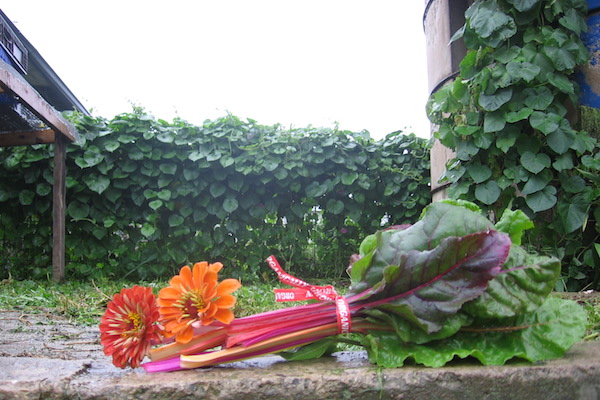
Rightsizing The Ship: A Farmer’s Tale of Scaling Down
Listen to the full episode: Rightsizing The Ship: A Farmer’s Tale of Scaling DownThis hub discovered that the bigger the business got, the more money it lost and that moving aggregation functions off of the owner’s farm caused the operation to be less efficient at that level of sales. The owner chose to contract the business to focus on getting profitable and repaying existing suppliers.
-
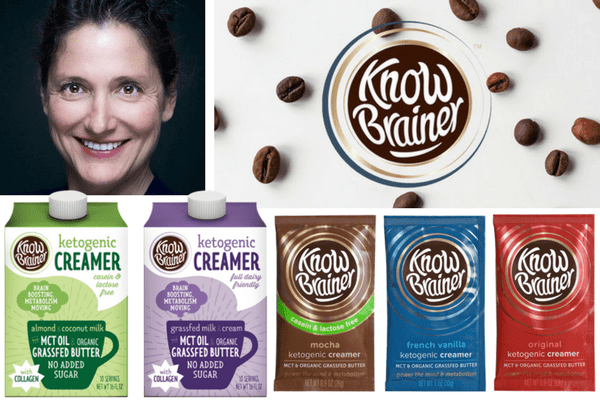
Scaling Innovative Food Products At The Right Time
Listen to the full episode: Scaling Innovative Food Products At The Right TimeThe ideal market for Know Brainer’s individual creamer products has been online with Amazon and their own online store while their multi-serve product is more of a conventional grocery item. They only started to scale their product after extensive customer research and testing.
-
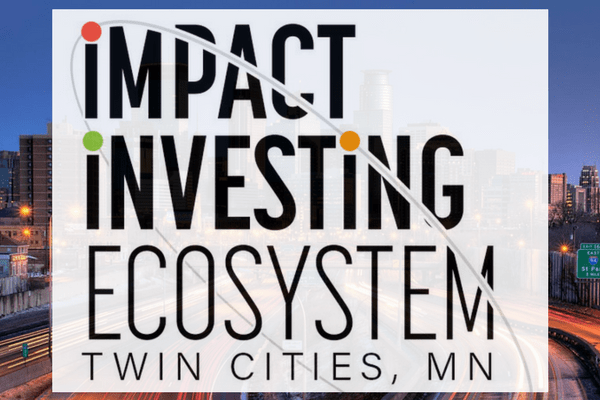
Impact Investing In Regenerative Agriculture
Listen to the full episode: Impact Investing In Regenerative AgricultureThere are investable opportunities in companies that provide support for regenerative agriculture systems and smaller, donation-supported loan funds combined with technical assistance in the $15,000-$50,000 range fill a market gap for small entrepreneurs as they scale up and seek larger sources of financing later.
-
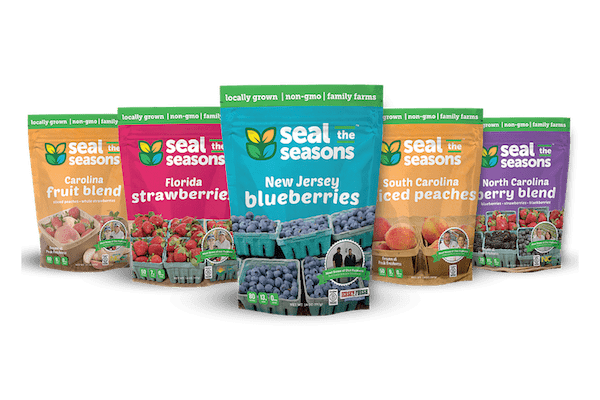
How Seal The Seasons Matches Mission With Scale
Listen to the full episode: How Seal The Seasons Matches Mission With ScaleSeal The Seasons began production in one of the partitions of a shared-use commissary kitchen facility where they installed an Individually Quick Frozen (IQF) production freezer, later partnering with a co-packer in 2017 and almost doubled their gross margin contributions as a result, passing more money to their farmer suppliers.
-
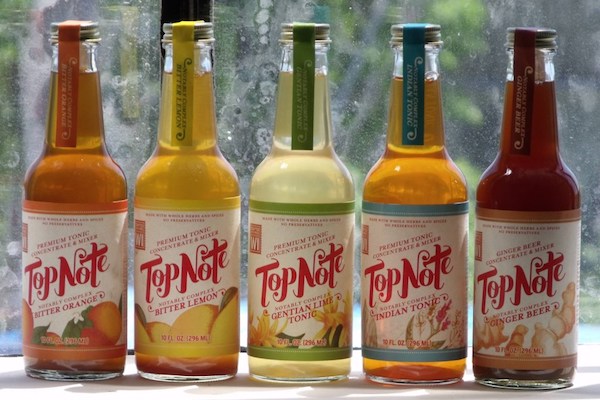
How Top Note Tonic Pivoted Beverage Categories and Understood Their Market
Listen to the full episode: How Top Note Tonic Pivoted Beverage Categories and Understood Their MarketTop Note has pivoted away from syrups towards niche ready-to-drink, already mixed sparkling tonics, using their foray into syrups to further understand the mixer category and build their brand. Mary reflected that having a good bank as a partner is important and that learning about money has been the most useful thing that she has…
-
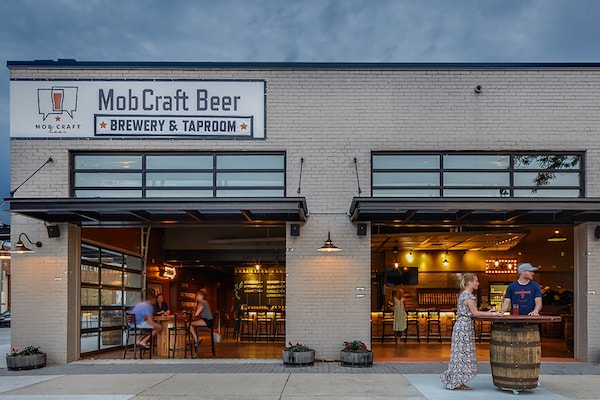
MobCraft Beer’s Creative Sourcing of Recipes and Financing
Listen to the full episode: MobCraft Beer’s Creative Sourcing of Recipes and FinancingMobCraft beer is a brewery and taproom with a unique business model of crowdsourcing ideas for beer recipes from their customers. Knowing how much equity they needed vs. debt to finance their facility build out and equipment needs helped them pitch specific asks to both banks and investors, including for their $2 million tap room…
-
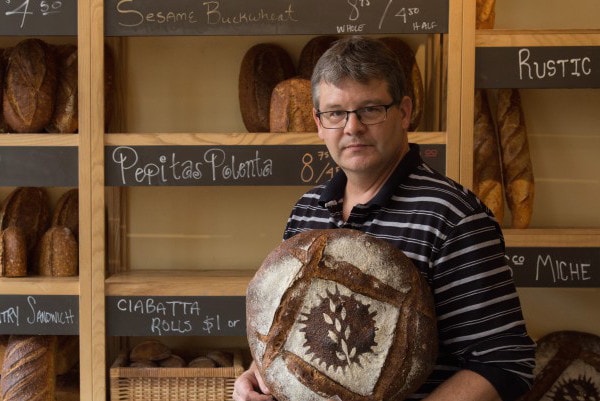
Growing Madison Sourdough Intentionally Through Vertical Integration
Listen to the full episode: Growing Madison Sourdough Intentionally Through Vertical IntegrationMadison Sourdough has grown using a vertically integrated business model by adding a restaurant that highlights their baked goods and bakery. They have also added an artisanal grain mill to their production processes, sourcing much of the flour themselves from local producers.
-
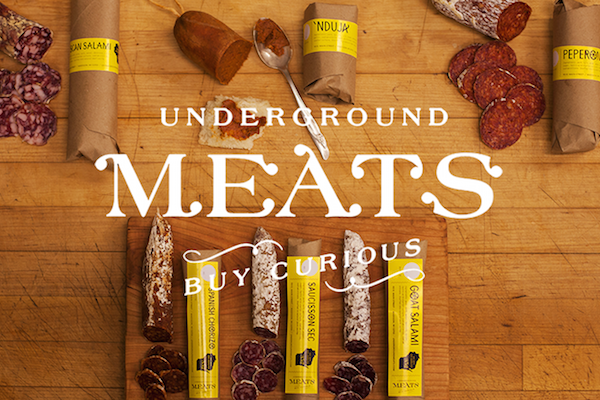
Jonny Hunter Of Underground Food Collective On Thinking Bigger in the Food System
Listen to the full episode: Jonny Hunter Of Underground Food Collective On Thinking Bigger in the Food SystemJonny Hunter of the Underground Food Collective talks about his wish that values around local and sustainable food could be used to create systems that have scalable efficiencies that are affordable to consumers. He advocates for working together to build and sustain the infrastructure that would support processing and other means to scale up the…
-
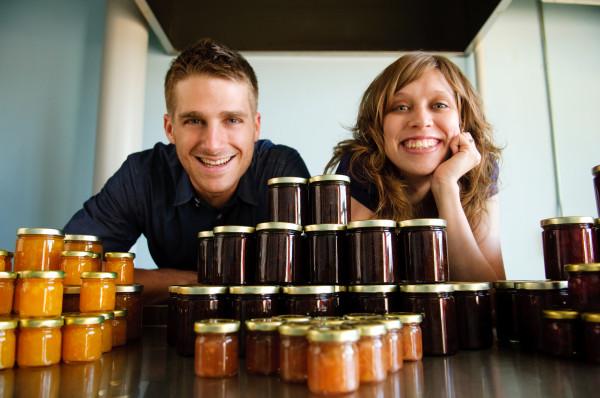
A Steady, Slow Growth Path For Quince and Apple’s Niche Domination
Listen to the full episode: A Steady, Slow Growth Path For Quince and Apple’s Niche DominationBecause Quince and Apple has labor-intensive, artisanal products, the best strategy was not to compete on quantity or price. Instead, they chose to compete by dominating an emerging niche (pairing their products with specialty cheeses) while telling the defensibly unique story of their artisanal processes.
-
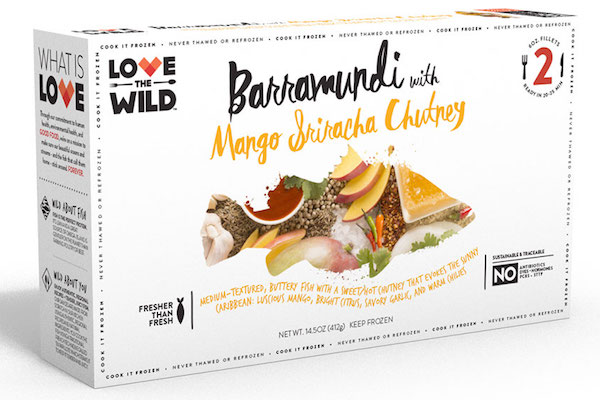
How Love The Wild Built A National Brand For Frozen Farmed Fish
Listen to the full episode: How Love The Wild Built A National Brand For Frozen Farmed FishWithin six months of launching their company they got their product out in front of consumers, trying out 127 product variations over an additional 18 months in just two stores. Once they honed in on their product, they rapidly expanded into distribution and raised multiple rounds of funding to support their growth.